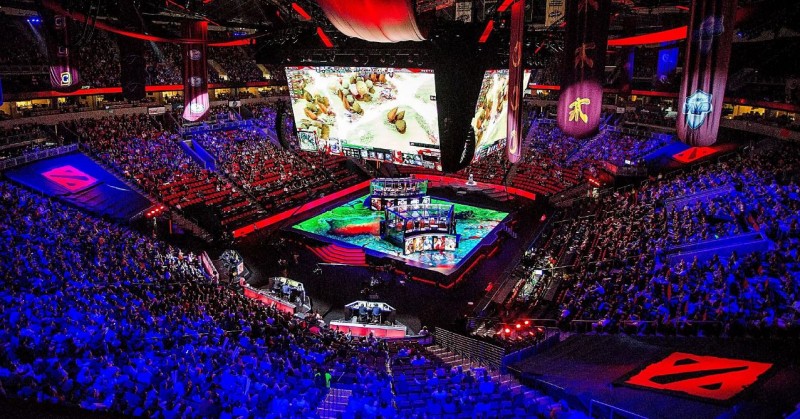
Introduction
In recent years, esports has witnessed an extraordinary surge in popularity, transforming from a niche hobby into a professional spectacle. What was once a pastime confined to a select few has now become a global phenomenon, captivating millions of fans around the world. This article explores the remarkable rise of esports, tracing its journey from humble beginnings to its current status as a mainstream entertainment industry.
The Origins of Esports
Esports, short for electronic sports, can be traced back to the early days of video gaming. With the advent of competitive multiplayer games like Space Invaders and Pac-Man in the 1980s, players began to gather in arcades to challenge each other's skills. These informal competitions laid the groundwork for what would eventually become organized esports tournaments.
Technological Advancements and Connectivity
The evolution of technology played a crucial role in the growth of esports. As personal computers and gaming consoles became more affordable and accessible, the number of gamers increased significantly. Furthermore, the rise of the internet and broadband connectivity allowed players from different locations to connect and compete with one another, laying the foundation for online multiplayer gaming.
The Growth of Competitive Gaming
In the 1990s, organized competitive gaming started gaining traction. Tournaments such as the Red Annihilation Quake tournament attracted large audiences and showcased the potential of esports as a spectator sport. These events provided a platform for players to demonstrate their skills and paved the way for future esports competitions.
Esports in the Mainstream Media
As esports continued to gain momentum, mainstream media outlets started to take notice. Television networks began broadcasting esports tournaments, exposing the phenomenon to a wider audience. This increased visibility helped legitimize esports as a legitimate form of entertainment and contributed to its growing popularity.
The Professionalization of Esports
With the growing interest from fans and sponsors, esports evolved into a professional industry. Major tournaments started offering substantial prize pools, attracting top-tier players and teams. The establishment of esports organizations and leagues provided structure and stability, further enhancing the professionalization of the industry.
Esports and Big Brands
Recognizing the immense potential of esports, big brands began to invest in the industry. Companies from various sectors, including technology, sports apparel, and energy drinks, entered into partnerships with esports teams and sponsored major tournaments. This influx of financial support helped elevate the production value of events and brought esports to a wider audience.
The Role of Streaming Platforms
Streaming platforms, such as Twitch and YouTube Gaming, revolutionized the way esports is consumed. These platforms allow fans to watch live matches, engage with their favorite players, and participate in the community. The interactive nature of streaming platforms has contributed significantly to the growth of esports, as fans feel more connected and engaged with the players and the overall experience.
Esports as a Career
Esports has emerged as a viable career option for talented gamers. Professional players can earn substantial salaries, secure sponsorship deals, and compete on a global stage. Additionally, opportunities in esports extend beyond playing, with careers in coaching, broadcasting, event management, and content creation becoming increasingly prevalent.
Diversity and Inclusion in Esports
Efforts are being made to foster diversity and inclusion within the esports community. Organizations and initiatives are actively working to create more opportunities for underrepresented groups, including women and minorities. By promoting diversity and inclusion, the industry aims to ensure that esports is accessible and welcoming to all.
The Global Reach of Esports
Esports has transcended geographical boundaries, captivating fans from all corners of the globe. Major tournaments draw viewership numbers that rival traditional sporting events, with millions tuning in to watch their favorite teams compete. Esports has become a universal language, bringing people together through their shared passion for competitive gaming.
Esports and Traditional Sports
The relationship between esports and traditional sports has become increasingly intertwined. Professional sports teams and athletes have recognized the potential of esports and have started investing in or creating their own esports organizations. This convergence of esports and traditional sports has created new opportunities for collaboration and cross-promotion.
The Future of Esports
The future of esports looks promising. With advancements in technology, including virtual reality and augmented reality, the spectator experience is expected to become even more immersive. Esports will likely continue to grow, attracting more players, fans, and sponsors. As the industry matures, we can expect further innovation and expansion into new territories.
Conclusion
The rise of esports from a niche hobby to a professional spectacle is a testament to the power of technology, connectivity, and human passion. What started as friendly competitions in arcades has transformed into a global phenomenon that captivates millions. As esports continues to evolve and gain mainstream recognition, it holds immense potential to reshape the landscape of entertainment and create new opportunities for both players and fans.
Indian Gaming Industry: A Growing Powerhouse in the Global Market
Indian Sports Personalities: Icons of Excellence and Inspiration
Pakistan Minister Criticizes India's Security Concerns as Excuse for Non-Participation